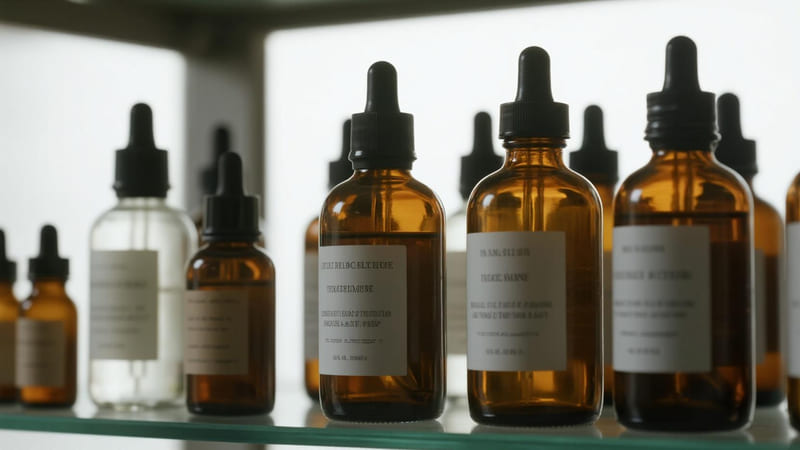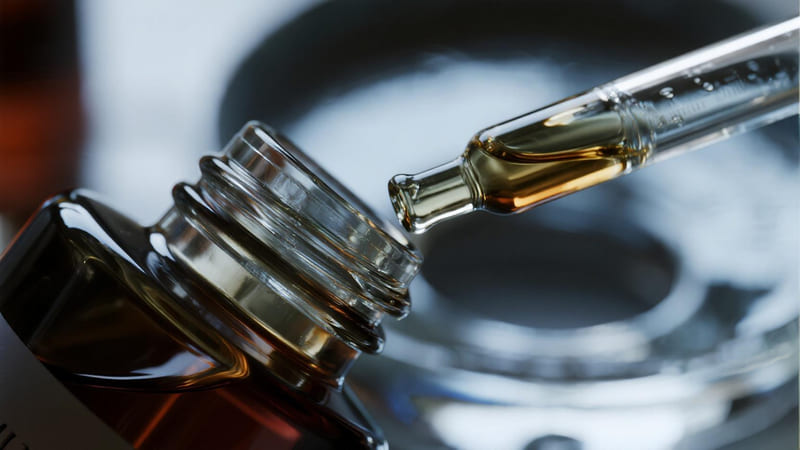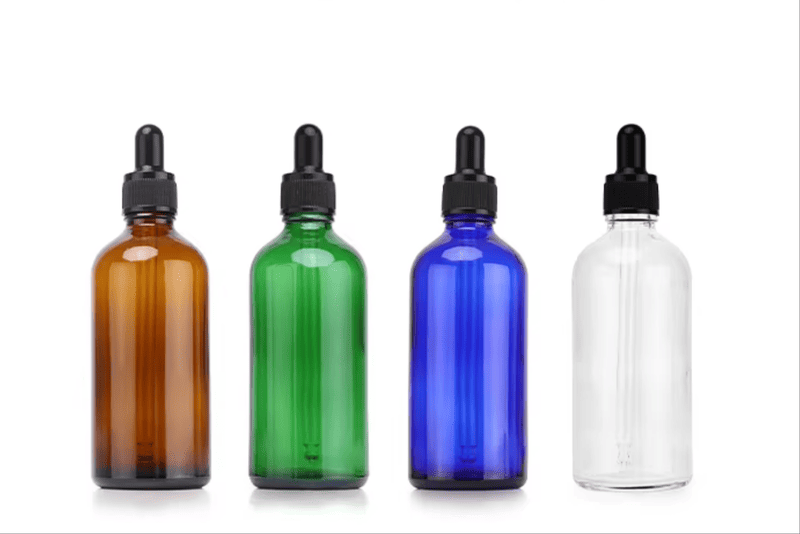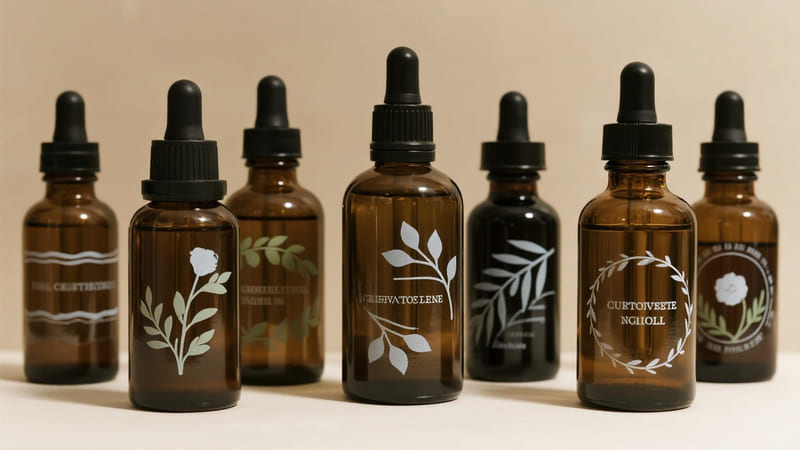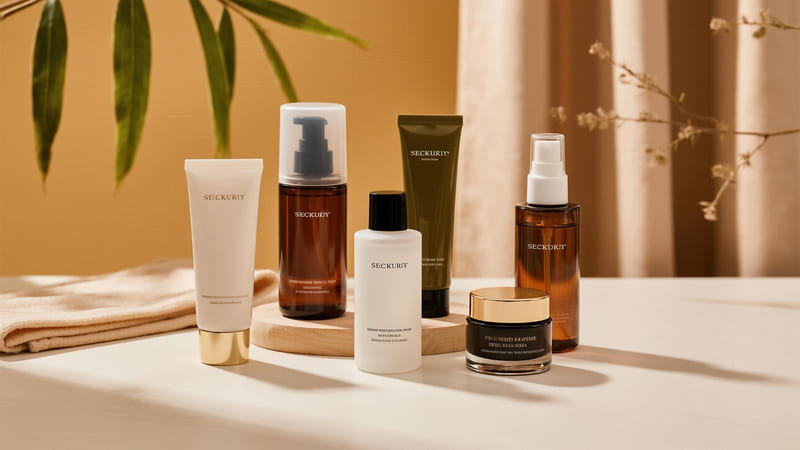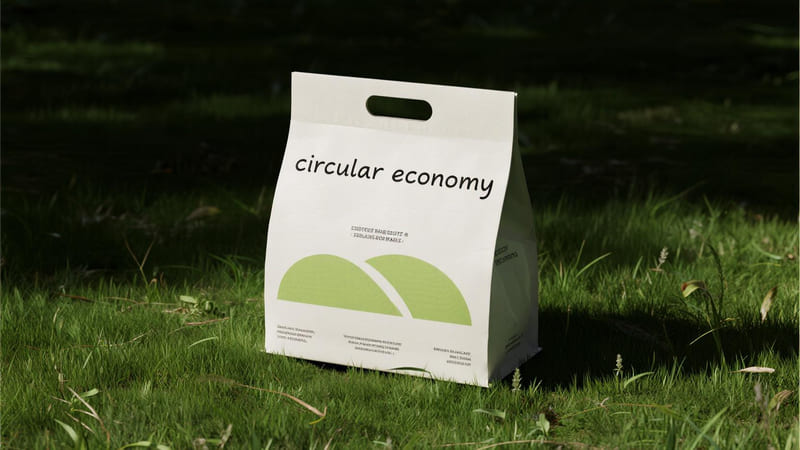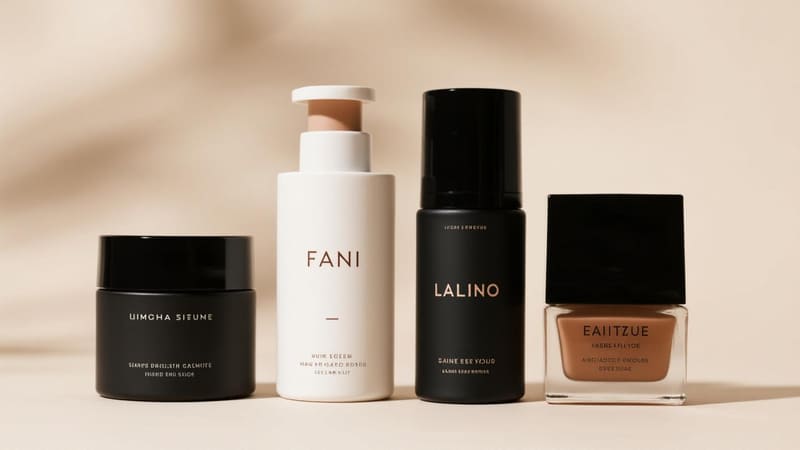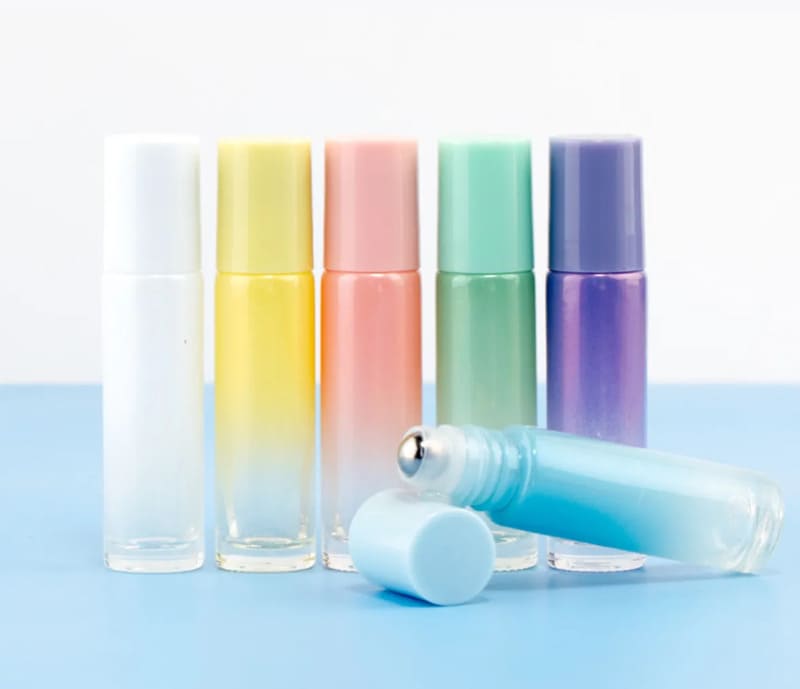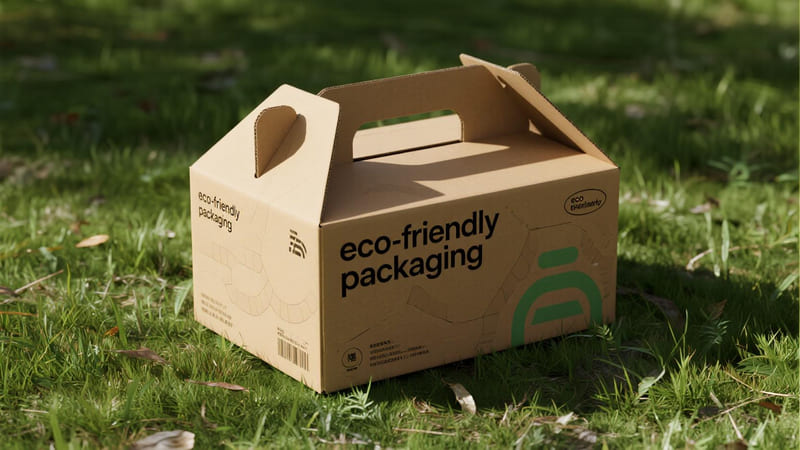Struggling to keep your tinctures potent and pure? The wrong packaging can ruin your formula. Glass bottles provide the inert, protective barrier your high-quality product deserves, ensuring its integrity.
Glass is the preferred material for tincture bottles because it is chemically inert, impermeable, and offers excellent protection against external elements. This ensures the tincture’s potency, purity, and shelf life are maintained without any risk of chemical leaching or contamination from the packaging itself.
So, we know glass is the go-to choice. But what exactly gives it this superior status? It’s more than just a traditional look; it’s about pure science and protecting the valuable contents inside. Let’s break down the specific properties that make glass the champion for tincture storage. I’ve seen firsthand how the right bottle can make or break a product line.
What makes glass the superior choice for preserving tinctures?
Choosing the right material feels complex. A poor choice can compromise your tincture’s quality. Glass stands out for its unique protective qualities that keep your product safe and stable.
Glass is superior because it’s non-reactive (inert), so it won’t alter your tincture’s chemical makeup. It’s also non-porous (impermeable), preventing oxygen from getting in and degrading the formula. This combination preserves the tincture’s original potency, aroma, and flavor for much longer.
The superiority of glass isn’t just a claim; it’s based on its fundamental properties. I remember working with a client, much like Mohammed from Iraq, who was developing a new essential oil blend. He initially considered plastic to cut costs, but we ran a small test. The plastic-stored sample lost its distinct aroma profile in just a few weeks. The glass sample remained perfect. This experience highlights why these properties are so critical.
The Core Advantages of Glass
Let’s look at these benefits more closely. Each one plays a vital role in protecting the product you’ve worked so hard to create.
| Property | Why It Matters for Tinctures |
|---|---|
| Chemical Inertness | Glass does not react with the contents. This is crucial for alcohol or oil-based tinctures, preventing any leaching of chemicals into your product. |
| Impermeability | Glass creates a perfect barrier against oxygen and moisture. This prevents oxidation, which can degrade active ingredients and shorten the shelf life. |
| Purity Preservation | Because it’s non-porous and inert, glass maintains the original flavor, aroma, and potency of the tincture. Your customer gets the exact product you intended. |
These factors combined ensure that the end-user experiences the product at its absolute best, which is key for building brand loyalty.
How does the color of the glass affect the tincture inside?
Ever wonder why tincture bottles come in different colors? It’s not just for looks. The wrong color can leave your product vulnerable to light damage, spoiling its potency.
The color of the glass acts as a light filter. Amber glass offers the best protection against harmful UV radiation, which can break down active compounds. Cobalt blue offers moderate protection, while clear glass offers none, making it suitable only for light-stable formulas.
Light, especially UV light, is a major enemy of many botanical extracts and essential oils. It can trigger chemical reactions that degrade the product over time. This is why colored glass is so important. I worked with Anna, a brand owner from Thailand, on her new vitamin C serum. Vitamin C is notoriously unstable and light-sensitive. We chose our darkest amber glass bottles to give her product the maximum possible shelf life and ensure her customers received an effective product every time.
Comparing Glass Colors for UV Protection
The choice of color is a functional decision, not just an aesthetic one. Here’s a simple breakdown to guide your selection.
| Glass Color | Level of UV Protection | Best Use Case |
|---|---|---|
| Amber | Excellent | The industry standard for light-sensitive tinctures, pharmaceuticals, and essential oils. Blocks most UV light. |
| Cobalt Blue | Good | Offers good UV protection and has a premium look. A great choice for many cosmetic and wellness products. |
| Green | Fair | Provides some protection from light, better than clear but not as effective as amber or blue. |
| Clear (Flint) | None | Best for products that are not light-sensitive or when you want to showcase the product’s natural color. |
Choosing the right color is a critical step in packaging design that directly impacts product quality.
Are there any good alternatives to glass for tincture bottles?
Glass is great, but its weight and fragility can be a concern. You might be looking for a lighter, more durable alternative. But can other materials truly protect your tincture?
While glass remains the top choice, high-quality, specialized plastics like PETG or certain types of HDPE can be suitable alternatives. Aluminum is another option, offering total light protection and durability. However, compatibility testing with your specific formula is absolutely essential before making a switch.
As a packaging manufacturer, we explore all material possibilities to meet diverse client needs. While I almost always recommend glass for tinctures, I understand the need for alternatives, especially for shipping or specific product types. The key is to choose a material that doesn’t compromise your formula. It’s not about finding a cheap replacement, but a functional one.
Comparing Tincture Bottle Materials
Let’s weigh the pros and cons of the most common alternatives to standard glass.
| Material | Pros | Cons |
|---|---|---|
| Glass | Inert, impermeable, premium feel, recyclable, excellent UV protection (if colored). | Heavier, breakable, can be more expensive. |
| Specialized Plastic (PETG/HDPE) | Lightweight, shatter-resistant, lower shipping costs. | Potential for chemical leaching (must test!), less premium feel, can be permeable to oxygen over time. |
| Aluminum | Lightweight, unbreakable, 100% light-blocking, recyclable. | Can dent, requires an internal lining to prevent reaction with the product, opaque. |
My advice is always this: if you consider an alternative to glass, you must conduct rigorous stability and compatibility testing. Send us a sample of your formula, and we can help you test it against different materials to ensure there are no adverse reactions over time. Don’t risk your brand’s reputation on an untested material.
Can you customize glass tincture bottles for your brand?
Want your tincture to stand out on the shelf? A generic bottle won’t cut it. Your unique brand story gets lost if your packaging looks like everyone else’s.
Absolutely. Glass tincture bottles are highly customizable. You can choose different shapes, sizes, and colors. We can also apply various decorations like screen printing, hot stamping, or frosting to create a unique look that embodies your brand’s identity and attracts customers.
Customization is where we turn a container into a brand experience. This is one of my favorite parts of the process. I recently worked with Mohammed, who needed a full packaging set for a client. We didn’t just supply a bottle; we created a complete package. We screen-printed a logo on the bottle cap and designed a beautiful custom drawer box to hold the bottle, a soap, and a foaming net. This elevated the product from a simple item to a premium gift set, which he said dramatically helped his client’s sales.
Popular Customization Options
Here are some of the ways we can make your glass bottle uniquely yours.
| Technique | Description | Best For |
|---|---|---|
| Screen Printing | Ink is applied directly to the glass surface. Durable and great for logos and text. | Simple, bold designs with one or two colors. |
| Hot Stamping | A metallic foil is applied using heat and pressure. | Creating a luxurious, metallic finish for logos or accents. |
| Frosting | Creates a matte, translucent finish on the glass. | An elegant, premium, and tactile feel. |
| Color Spraying | The bottle is coated with a custom color, can be opaque, translucent, or have a gradient effect. | Achieving a specific brand color that isn’t available in standard glass. |
Remember, customization extends beyond the bottle itself to droppers, caps, and secondary packaging like boxes. A cohesive design across all elements creates a powerful and memorable brand statement.
Conclusion
In short, glass is the best choice for tinctures due to its protective qualities. Proper color selection and customization will further preserve your product and elevate your brand’s presence.

